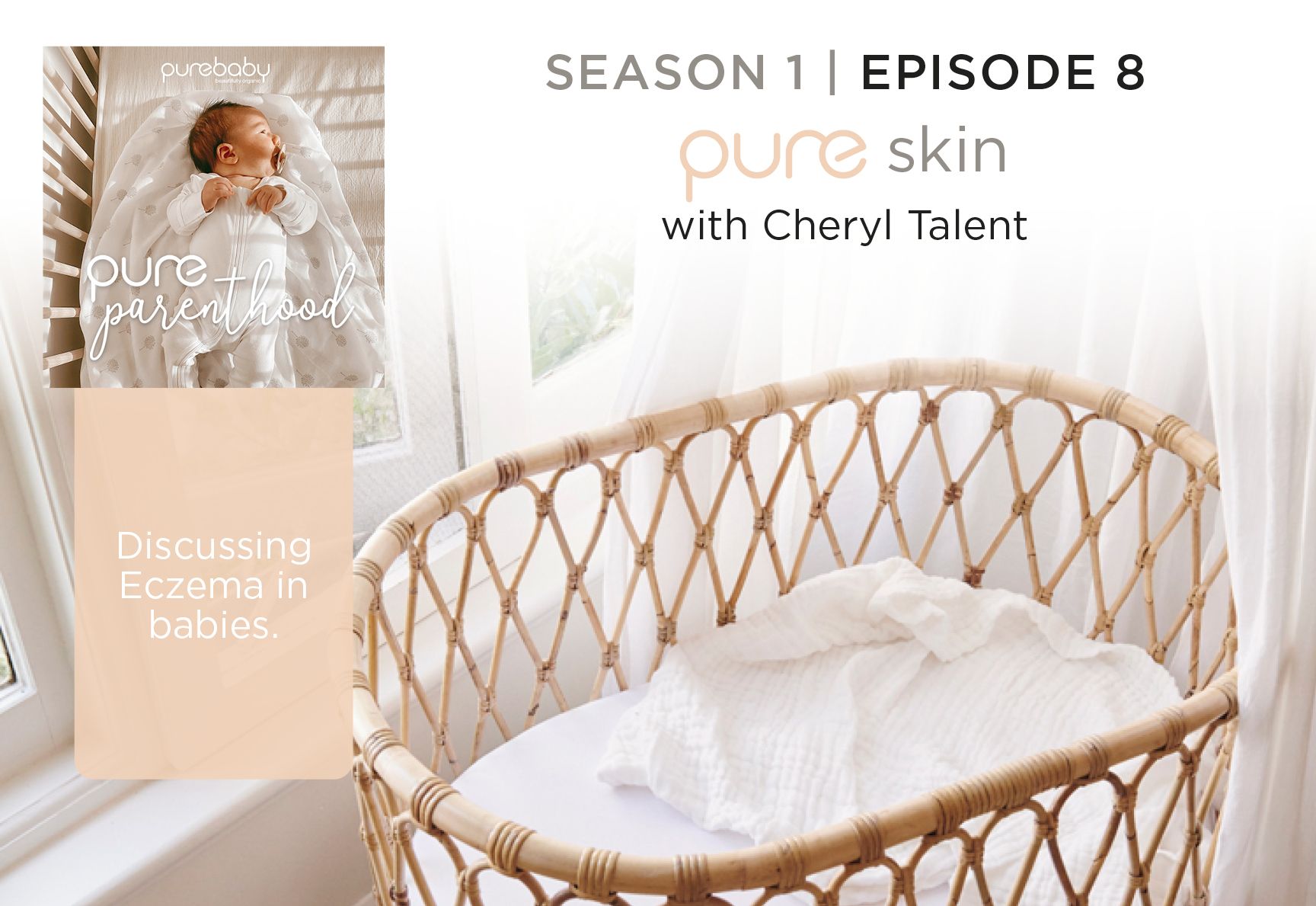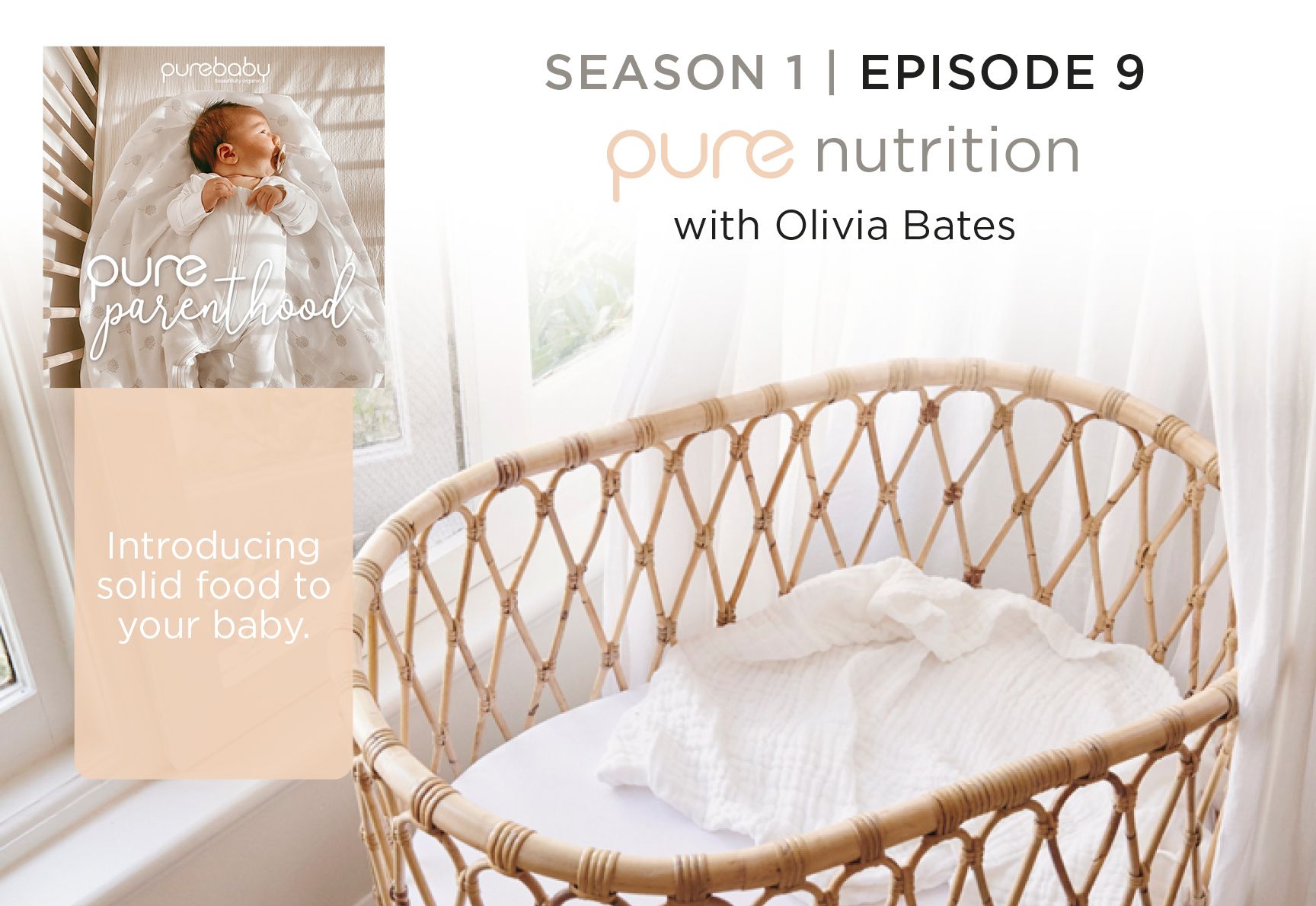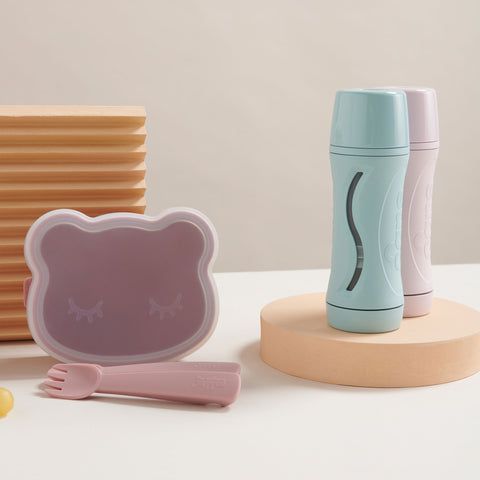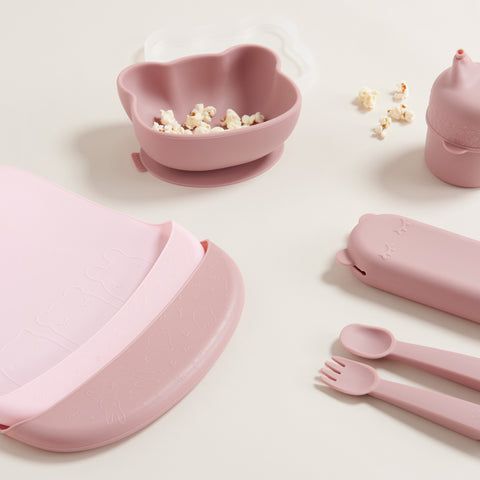
Pure Skin: Treating Babies With Eczema
8 min read | 27 September 2020
New In
Essentials
Clothing
Accessories
Shop By Gender
Shop By Size
Collections
Baby
Clothing
Accessories
Shop By Gender
Shop By Size
Collections
Nursery
Care
Play
Kids
Clothing
Accessories
Shop By Gender
Shop By Size
Collections
Care
Play
Gifts
Baby Gifting
Kids Gifting
Shop By Price
Shop By Event
Shop By Gender
Sale
Sale
Shop By Gender
Learn
Education
Resources
Pre-Loved
Rewards
14 min read | 04 October 2020

When babies are born, they rely on breastmilk or formula to provide 100% of their nutritional needs. However, as they grow and develop, their nutritional needs change and they are no longer able to obtain adequate amounts of certain nutrients from breastmilk or formula alone. In particular, iron and zinc.
Babies are born with somewhat adequate iron stores from their time in mum’s tummy, which are simply topped up through their breastmilk or formula feeds. But as they approach the six-month mark, their stored iron and zinc starts to diminish and their needs for these nutrients increase. Therefore, they require the addition of complimentary or solid foods to help meet these requirements.
While we know babies require complementary foods around six months of age, the recommended timing for the introduction of solids has varied over the past decade.
These variations are in part due to changes in recommendations around the introduction of allergens.
In Australia, our current guidelines reflect those of the World Health Organisation (WHO) and the Australasian Society of Clinical Immunology and Allergy (ASCIA). These sources state that complementary foods should be introduced around six months of age, but not before four months. If baby is approaching seven months of age and not yet showing signs of readiness, it is important to check in with your paediatrician.
Based on these current guidelines, it is recommended that solids are introduced within that four to six-month window and when baby is showing these key signs of readiness:
Good head and neck control, ability to sit upright when supported
Showing an interest in food
Reaching out for your food
Opening mouth when offered food on a spoon
Gradual disappearance of the tongue’s push extrusion reflex

What to first introduce to your baby is often dictated by individual cultures, but there really are no hard and fast rules. For those babies who are ready to commence solids before six months, it is best to expose baby to as many different vegetables as possible, followed by fruits. Babies have an innate preference for sweet tastes since breastmilk and formula are naturally sweet. By focusing on the introduction of vegetables before fruit, we encourage greater acceptance of savoury foods, rather than reinforcing the preference for sweet.
Once baby hits the six-month mark, the focus is on ensuring that the baby is consuming iron rich foods on a daily basis, as we know their iron (and zinc) stores are dropping. The decrease in baby’s iron stores is reflected by a significant increase in their requirements for this crucial nutrient, as shown in the Nutrient Reference Values (NRVs) below:
Daily Iron Requirements | Daily Zinc Requirements | |
|---|---|---|
0-6 Months of age | 0.2mg | 2.0mg |
7-12 Months of age | 11.0mg (RDI) | 3.0mg |
Rice cereals have traditionally been encouraged and recommended by health care professionals as they are fortified with iron. Rice is an easy ‘vehicle’ to carry added iron as it is unlikely to cause any allergic reaction, making it more uniformly accepted. However, as long as you are providing some source of iron to help meet those significantly increased requirements from 6 months of age, it is not necessary to give rice cereal. It is completely up to what works best for you.
It is also important to know that not all rice cereals are made equal. Some are actually better than others in terms of iron content, so make sure you are checking the iron content, both per serve and per 100g, when comparing different brands and products.
“I am also a huge advocate of making your own cereal. Traditional rolled oats have comparative amounts of iron. Rolled oats can be turned into an appropriate cereal by blending the whole grains in a food processor or blender until it becomes a finer texture, then cook with water or formula/breast milk. Ground amaranth, millet or quinoa flakes can also make good alternatives and will contribute to meeting baby’s iron requirements.”, says Bates.
When it comes to sources of iron, you will often hear dietitians in particular talk about haem and non-haem iron. Haem iron refers to the type of iron found in animal tissues and non-haem iron is found in plant sources.
Whether it is haem or non-haem iron you are feeding to baby, you can help to increase their absorption of iron by combining the iron-rich food with a source of vitamin C. Most fruit and vegetables contain a decent dose of vitamin C, so mixing meat into a vegetable puree is a good way of boosting iron levels.
Animal Source (Heam Iron) | Mg Iron (per 100g serving) | Plant Source (Non-Haem Iron) | Serve Size | Mg Iron (per serving) |
|---|---|---|---|---|
Chicken Liver | 11 | Weetbix | 30g | 4.2 |
Beef | 3.5 | Kidney Beans | 1 cup | 3.1 |
Kangaroo | 3.2 | Green Lentils | 1 cup | 3 |
Lamb | 2.5 | Tofu | 100g | 2.9 |
Salmon | 1.28 | Chickpeas | 1 cup | 2.7 |
Tinned Tuna | 1.07 | Cooked Wholemeal Pasta | 1 cup | 2.3 |
Lamb Brains | 1.0 | Raw Spinach | 1 cup | 1.2 |
Pork | 0.8 | Rolled Oats | 30g | 1.0 |
Chicken | 0.4 | Dried Apricots | 30g (5 apricots) | 0.93 |
Snapper | 0.3 | Broccoli | 1 cup | 0.86 |
Iron is particularly important for babies and children as it is heavily involved in growth and development.
It also plays a number of key roles in baby’s little bodies:
It is responsible for transporting oxygen around the body to the organs
Assists in growth and development, particularly important for brain development
Manufacturing of energy. Iron is a co-factor in energy production
Involved in production of the happy hormones. A deficiency can result in low mood or poor behaviour
Environment
- Introduce solids in a relaxed, positive and healthy manner. If you are feeling stressed or anxious, baby can naturally pick up these feelings from the bodies’ physical response to these emotional states. Baby’s body then naturally mimics these feelings, and this can lead to negative associations with food.
Offer vegetables before fruit
- Babies have an innate craving for sweet foods, so if you expose them to fruit before vegetables, you will be constantly fighting an uphill battle to get them to eat their vegetables. It is also important not to sweeten vegetables with fruit purees such as apple and pear, as it gives baby a false appreciation of the real taste of vegetables. This will likely result in rejection down the track when you offer the unsweetened version.
Offer appropriate textured foods -
When baby starts solids, they have no or very few teeth, so they need to be able to swallow the food without chewing. Initially, start with a smooth puree with no lumps. Baby will very quickly progress to lumpier purees and eventually finger food, but always ensure close supervision to prevent choking. It is important to ensure you do progress the texture and not keep baby on smooth purees for too long, as increased resistance from lumps plays a vital role in speech and mouth development.
Be persistent and patient
– As with anything in both adults and children alike, it takes time to become accustomed to new things. Don’t expect your baby to love broccoli the first time you give it! You will need to try and try again. If after 3 attempts your baby is just not interested, move onto something else and then come back to it. Eventually with increased familiarity will hopefully come acceptance.
Remember it is a messy affair
– Equip yourself with a bib, splash mat, highchair and even a smock to keep the mess contained (at least a little bit).
Offer a wide variety of foods
to expose your baby to a wide array of nutrients. This includes offering foods in different food groups as well as choosing different coloured foods in the same food group.
Avoid shelf stable options where possible -
This process used to prevent spoilage, but also kills the nutrients, making them little more than a bag of energy with little to no nutritional value. When buying store bought, watch out for those sweetened with fruit and also those which contain water. You don’t want to be paying $3 for a bag of sugar and water! Babies have such little tummies that you want to make each mouthful count and get in as many nutrients as you can.
Introduce new foods in the mid-morning –
This is to ensure you can watch for any adverse reactions which may occur, and ideally away from sleep time. While it is no longer considered essential to introduce foods one at a time, particularly for babies with a family history of food allergies, I highly recommend doing so. It makes it easier to identify the allergen straight up.
Start introducing solids with a very clean finger -
Then progress to a silicon spoon with smooth edges. Be food safe - it is not necessary to sterilise utensils, but they must be clean.
Do not be concerned about how much or how little they eat
- Remember when you start solids, babies are still getting their primary nutrition to meet their requirements from breast milk or formula. This is simply about introducing the different tastes. Initially, they may only take one teaspoon and that is absolutely OK. It is only a cause of concern if baby starts losing weight. In this case, see your paediatrician.

This article was written by Olivia Bates, in conjunction with episode 9 of Purebaby’s podcast, Pure Parenthood. Olivia is the founder of Nourishing Bubs and a Dietitian. To learn more about Nourishing Bubs or baby nutrition, visit their website and read their blog, Nurtured by Nature.
Sign up to Pure Love Rewards and get $10 off your first online order, earn points every time you shop and more!